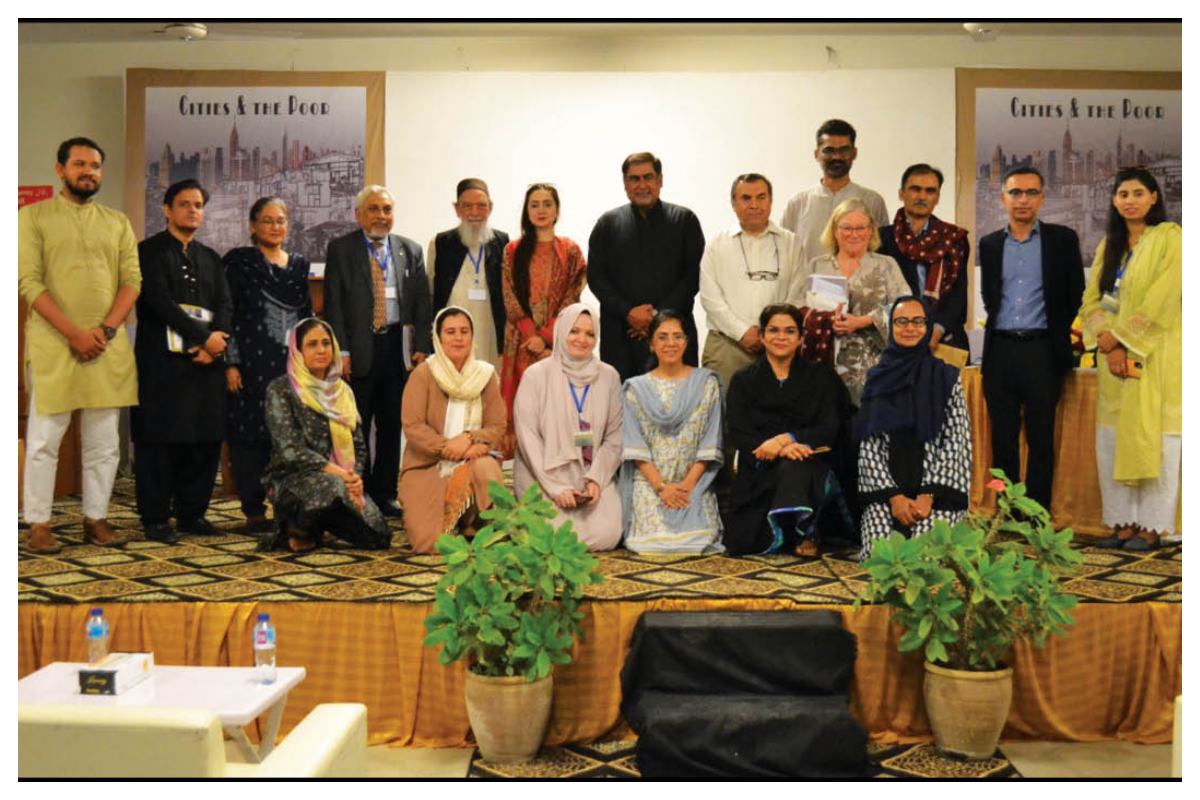
Metropolitan poors
Urban planning in Karachi remains a complex issue
KARACHI: The 6th International Conference on Urban and Regional Planning kicked off at NED University with a focus on Karachi.
The theme revolved around urban cities and the poor. Dr Anila Naeem, Chairperson Department of Architecture and Planning apprised the audience of the historical evolution of the conference and how it transformed into an international programme from a small-scale event.

Professor Dr Josephine Baell, Emiratis Professor and LSE Research Fellow on solid waste management in cities discussed the involvement of formal and informal workers in municipal solid waste management in the cities of Faisalabad and Karachi in the mid-1990s. She mentioned that the concern at that time was how to ensure recognition of the rights of those working in the informal waste economy.
According to her, privatisation has taken place but with greater caution and not as extensively as envisaged thirty years ago. There have been differential impacts on workers and micro-enterprises involved in waste collection in and between the two cities. She also assessed innovations in Pakistan and their potential to help shape the public’s political imaginaries through the micro-privatisation of primary collection services and waste recovery.
Amal Hashmi shared the findings of her study on urban challenges in Karachi, saying that Pakistan has rapidly urbanised in the last few decades and is currently the fastest urbanising country in South Asia.

Karachi is the largest city that sees 62 per cent of its population living in informal settlements due to a lack of affordable housing. The problems faced by those living in these informal settlements are wide-ranging, from transport to education, health, housing, and employment, which impact their daily lives.
The study explores the needs, wants, and perceptions of Karachi’s underprivileged. Instead of examining potential solutions, it focused on the causes of the issues and how they affected low-income families. Better housing, transportation, health care, and educational opportunities appear to be top priorities for this population when it comes to the city in which they reside, but what challenges do they encounter daily? Understanding how different groups of people define poverty and whether or not they believe themselves to be poor is also a crucial part of the study.
A survey of the city’s homeless people was also conducted as part of this study, and the results, which often went against popular perceptions of footpath dwellers, were unexpected. Surprisingly, a significant portion of people living in informal settlements either did not consider themselves to be poor or attributed their newfound poverty to the recent increase in prices.
Dr MouhammadTufail, Pro-Vice Chancellor NED University said in his concluding remarks that urban planning of old cities like Karachi is a complex issue and an integrated approach should be adopted by combining the engineering aspects and the social aspects of the masses. Urban Planning has multiple dimensions and those needs to be addressed by academia robustly.
Catch all the Urban Insight News, Breaking News Event and Latest News Updates on The BOL News
Download The BOL News App to get the Daily News Update & Live News.












 Read the complete story text.
Read the complete story text. Listen to audio of the story.
Listen to audio of the story.